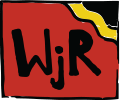Healthy Body
Healthy Body
Having a healthy body through good diet, exercise and staying away from drugs, alcohol and smoking is important to living a long life. We are lucky to live in a country with an abundance of fresh produce, clean air and a health system that provides a wide range of free support services and resources to help you on your way to living the healthiest life possible.
Nutrition
Good nutrition and eating well, ensures you have all the nutrients, vitamins and minerals needed to build a strong body, as well as helping to keep chronic disease and illness away. Eating a diet loaded up with with a wide variety of fresh fruits and vegetables, complex carbohydrates and good quality proteins is key to good health, along with limiting processed foods, sugar, excess salt and saturated fats.
Below are links to some available nutrition resources to help you on your healthy eating journey:
Australian Indigenous Health InfoNet: https://healthinfonet.ecu.edu.au/
Department of Health, Food and Nutrition: https://www.health.gov.au/health-topics/food-and-nutrition
Heart Foundation: https://www.heartfoundation.org.au/
Diabetes Australia: https://www.diabetesaustralia.com.au/
Diabetes WA: https://www.diabeteswa.com.au/
Nutrition Australia: https://nutritionaustralia.org/
Healthline: https://www.healthline.com/nutrition
National Health and Medical Research Council, nutrition guidelines: https://www.nhmrc.gov.au/health-advice/nutrition
Exercise
The Australian Government Department of Health recommends young people aim for at least 60 minutes of moderate to vigorous physical activity each day. The type of activities that make your heart beat faster! You should also aim for additional activities at least 3 times a week that strengthen muscle and bone.
Vigorous activity examples: Basketball, AFL, soccer, netball, swimming or running.
Moderate activity examples: bike riding, skateboarding or scootering.
Muscle and bone strengthening activity examples: skipping, yoga, lifting weights, push-ups, sit-ups, lunges and squats.
You should limit sitting down and recreational screen time to 2 hours per day. Switch sitting for being active!
Sleep is very important for health and young people should be aiming for 8-10 hours of sleep per night.
Chronic Health Support
Australian Government Aboriginal and Torres Strait Islander health initiatives and programs
715 Health Check
Aboriginal and Torres Strait Islander people can get a free health check once a year, as well as free follow-up care if needed. This helps keep people healthy by identifying risks of ill health early to prevent chronic conditions from developing. You can get your free health check at any Aboriginal Medical Service or bulk-billing clinic.
Closing the Gap (CTG) Program
The Closing the Gap (CTG) Pharmaceutical Benefits Scheme (PBS) Co-payment program was established to improve access to affordable PBS medicines for Aboriginal and Torres
Strait Islander people living with, or at risk of, chronic disease. If you are unsure if you are registered for the program, your PBS prescriber, Aboriginal and
Torres Strait Islander Health Practitioner or Pharmacist will be able to check online to see if you are registered.
Drug, Alcohol and Quit Smoking Support Services
Alcohol and Drug Support Service WA contact details: https://www.mhc.wa.gov.au/about-us/our-services/alcohol-and-drug-support-service
Make Smoking History services contact details: https://www.makesmokinghistory.org.au/community-services/training-and-resources/useful-links
Quitline Aboriginal Liaison Team (QALT): https://www.ahcwa.org.au/qalt
Cannabis information and support: https://cannabissupport.com.au/
Family Drug Support Australia – support line and resources: https://www.fds.org.au/
Alcohol and Drug Foundation – drug facts, reducing risk, resources: https://adf.org.au/
Mission Australia: https://www.missionaustralia.com.au/
Looking After Yourself
Good personal hygiene helps you to stay well and healthy, it can prevent you from getting sick from bacteria or infectious diseases. Good hygiene will also help prevent you from making other people unwell.
Personal hygiene includes:
- cleaning your body thoroughly every day with body wash or soap when taking a bath or having a shower
- washing your hands with soap after going to the toilet or changing a babies’ nappy
- washing your hands after touching rubbish or dirty surfaces/objects
- washing your hands after touching someone who is sick or cleaning up after them
- washing your hands before and after eating or preparing food
- washing your hands after handling pets and other animals
- washing your hands after treating cuts or wounds
- using hand sanitiser if you are unable to wash your hands with soap and clean water
- brushing your teeth twice a day and flossing daily to prevent bad breath and tooth decay
- covering your mouth and nose with a tissue (or your sleeve) when sneezing or coughing and washing your hands after
- preventing body odour by applying deodorant after washing, putting on clean/dry clothing and washing your clothes each time you wear them
